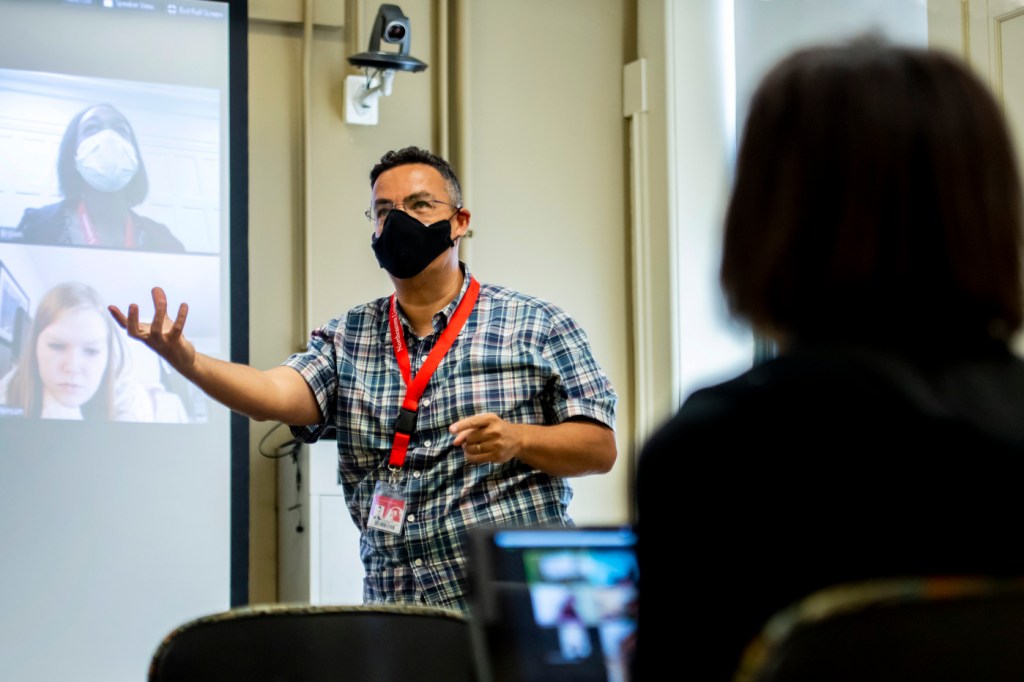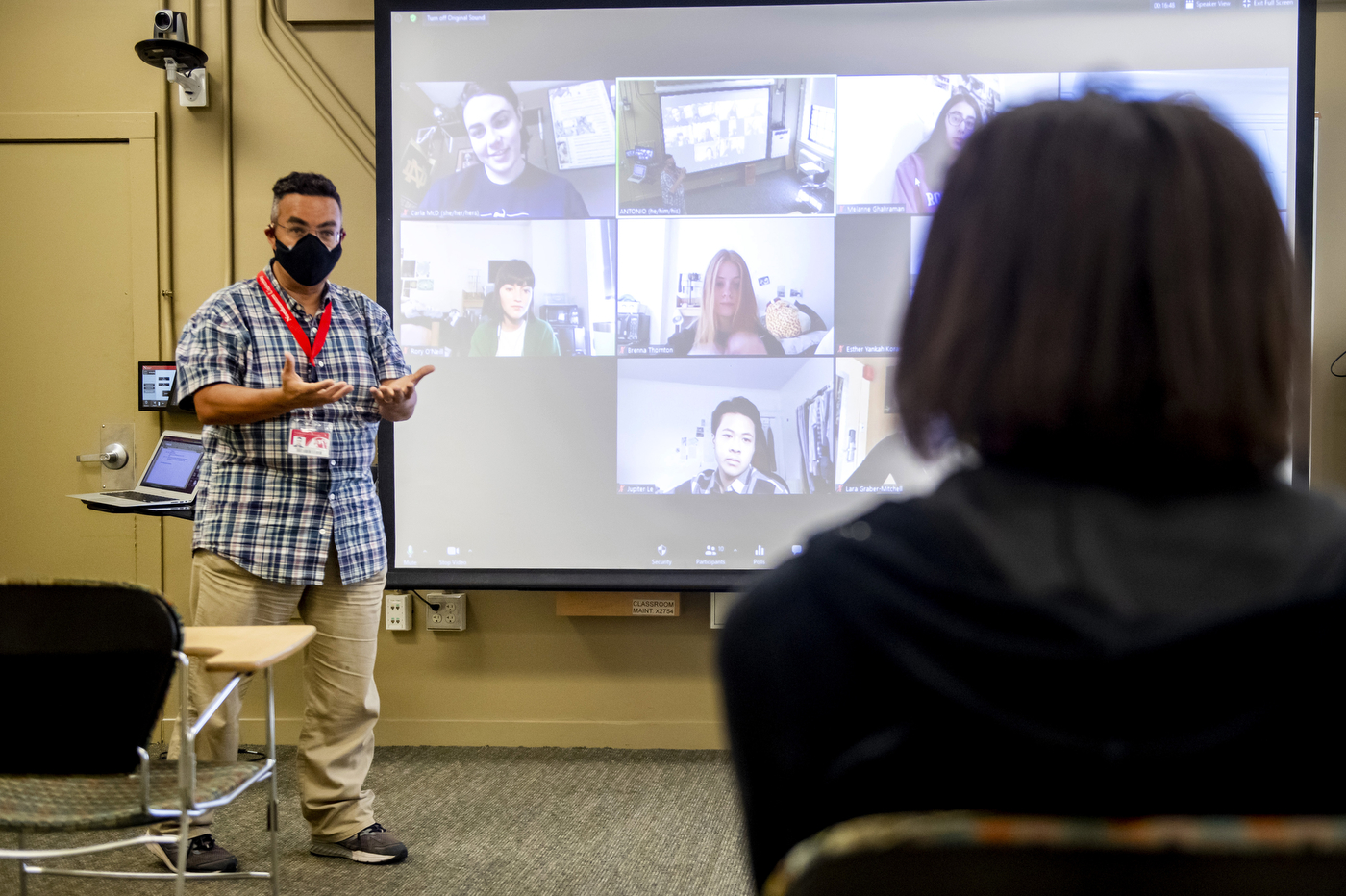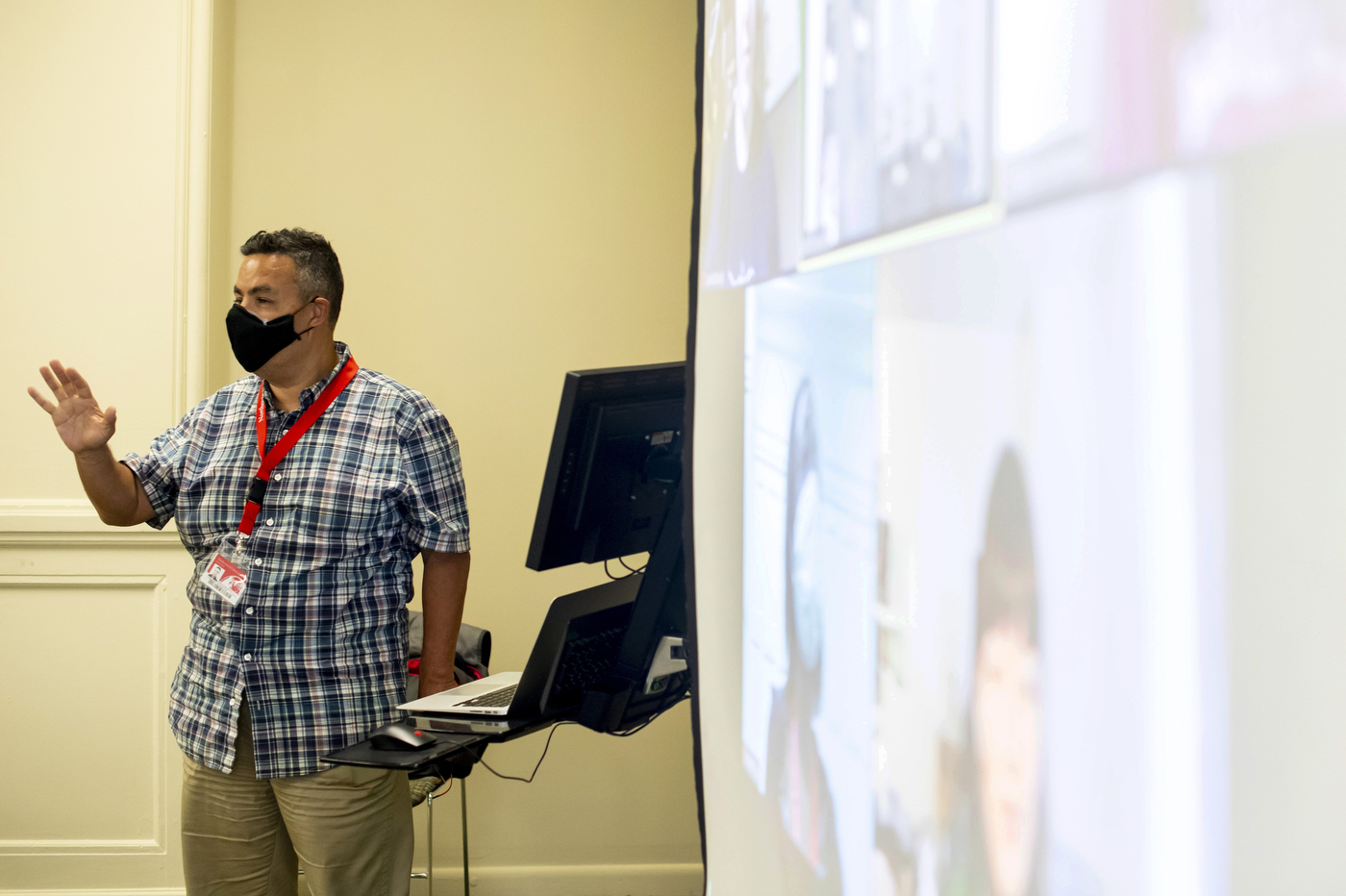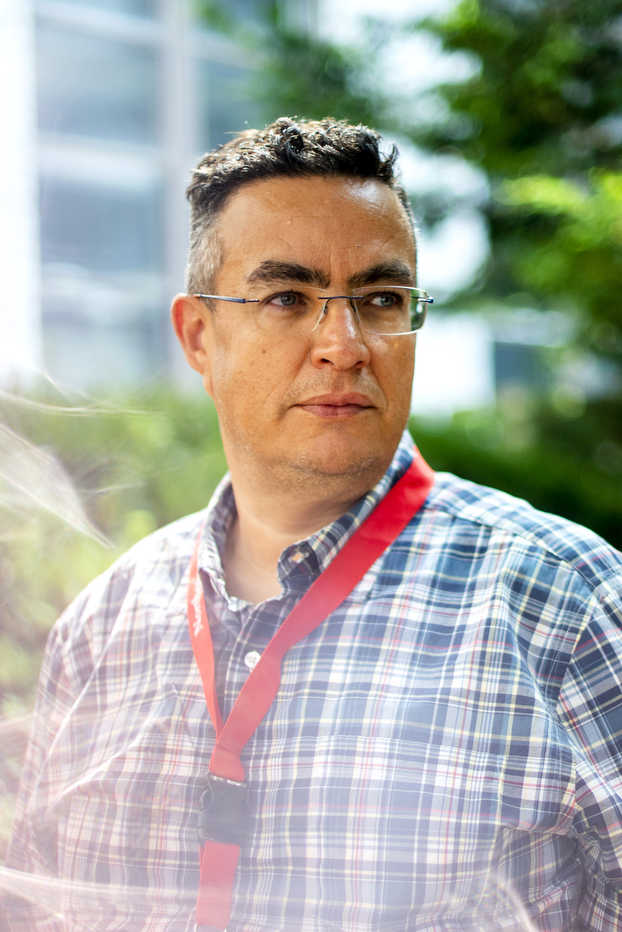This professor is inventing the next moment and bringing theater back to campus

Acting, says Antonio Ocampo-Guzman, chair of the Department of Theatre at Northeastern, is perpetually inventing the next moment. His practice in the art is perhaps partly why he wanted to return to the university’s Boston campus this fall. It was his chance to invent the next moment, week, semester, year, with his students and colleagues.
“When an actor is playing a role, the actor has read or written the play, rehearsed it, and knows what’s coming next, but the character doesn’t,” Ocampo-Guzman says after teaching his first in-person class since March. “At the core of the art is this ability to remain surprise-able to the next moment, and now we’re actually living that. In a really embodied experience, none of us knows what’s coming next; we’re inventing the next moment as we go.”
Ocampo-Guzman was one of hundreds of faculty members at Northeastern who had to pivot to remote education in the spring when the university closed its campuses to mitigate the spread of SARS-CoV-2, the coronavirus that causes COVID-19.


Six months later, and with rigorous testing and sanitation protocols in place to promote the health and safety of the community, Northeastern has reopened its Boston campus to students, faculty, and staff. And Ocampo-Guzman is one of many faculty who’ve chosen to return—a choice that was as much professional as personal.
“As far as I understand, the consequences of this pandemic aren’t going to be done any time soon,” he said, echoing predictions by scientists, public health officials, and Northeastern president Joseph E. Aoun.

Antonio Ocampo-Guzman is an associate professor and chair of the Department of Theatre in the College of Arts, Media and Design. Photo by Ruby Wallau/Northeastern University
“In the world of professional theater, the fact that we can’t gather in person to do what we’ve done for centuries is certainly complicating things, but this notion of suspending everything until the pandemic is solved was becoming untenable,” Ocampo-Guzman said. “We needed to find a way to work within the confines of the pandemic.”
He first returned to campus just before the semester started, a time when the long, slow summer days are about to give way to the energy and bustle of fall. As soon as he was back, Ocampo-Guzman got tested for the coronavirus and scheduled his follow-up test, a process that gave him a sense of confidence about the whole affair, he says.
Then he cleared off his desk, which was still covered in notes and ideas left untouched for the last six months—some of them in quickly scribbled shorthand, now inscrutable to him.
“For me, being able to go back to my office has been tremendous for my mental health,” Ocampo-Guzman says. Over the summer, he and his colleagues had to figure out how to enable students to learn and perform theater this semester. Now he can tackle that challenge from his Ryder Hall office.“I don’t have a dedicated space to do work here at home, and so I had this constant sensation of being displaced.”
The department is planning to host five productions this fall, using a variety of nontraditional formats. “It’s been a very inventive and very exhausting process, trying to find ways to make this happen,” he says. Faculty and staff are considering how to stream works online, or potentially collaborate with a radio station to air an audio drama. Ocampo-Guzman credits his colleague Samantha Richert with bringing particularly innovative ideas to the table.
One campus-wide innovation, in particular, seems tailor-made for the faculty of the Department of Theatre. Last month, Ocampo-Guzman taught his first class of the semester, a seminar for first-year students, in a classroom outfitted with cameras and audio equipment that enable both in-person and remote learning.
“It almost encouraged a performance energy. I had the sense that I was not only teaching, but performing for these students,” he says. “That was an exciting and surprising feature.”
Ocampo-Guzman said that it’s been “wonderful” to be back.
“It’s wonderful to see my students, even from a distance, and to share this moment together, to invent the next one together.”
For media inquiries, please contact media@northeastern.edu.





